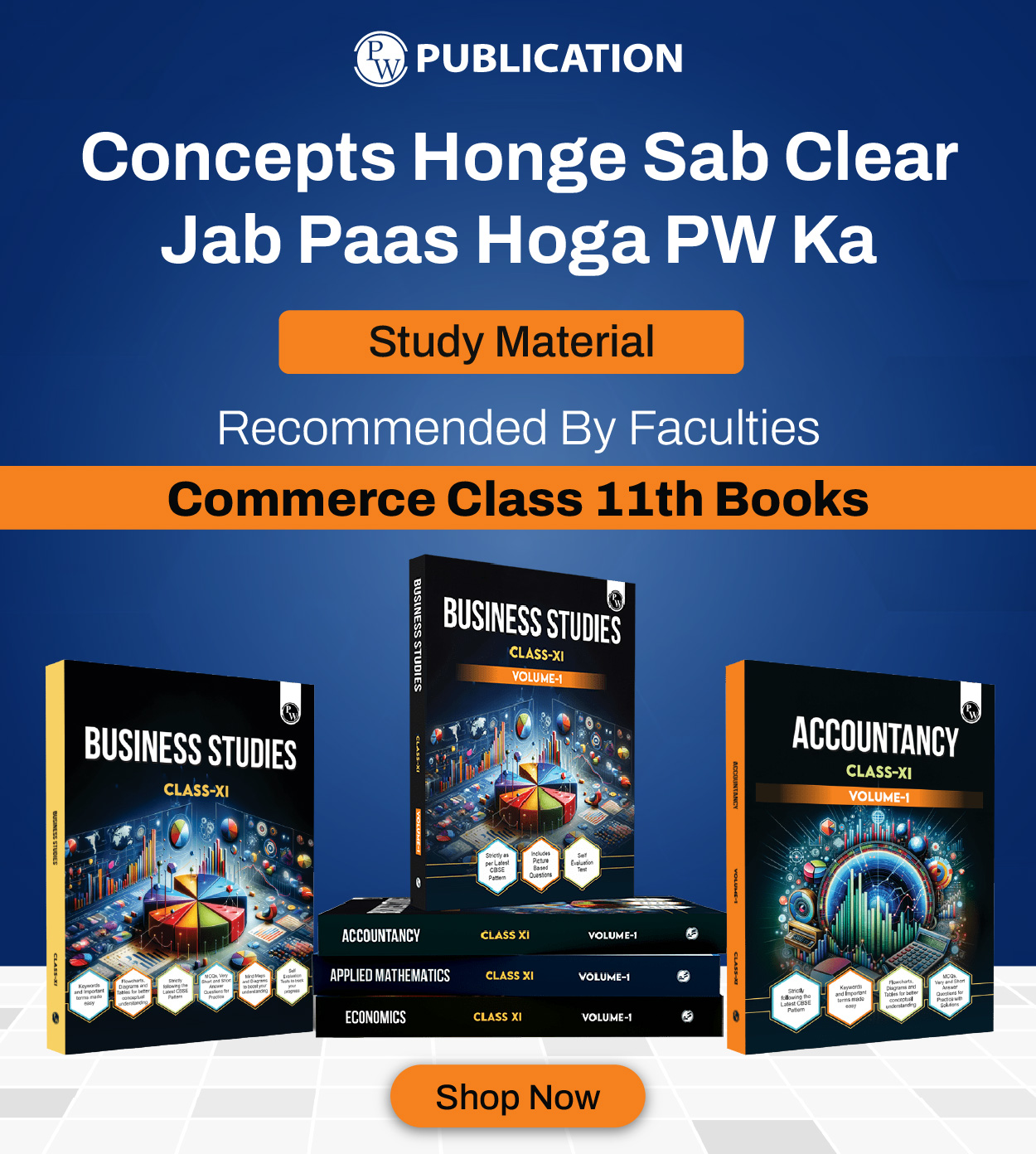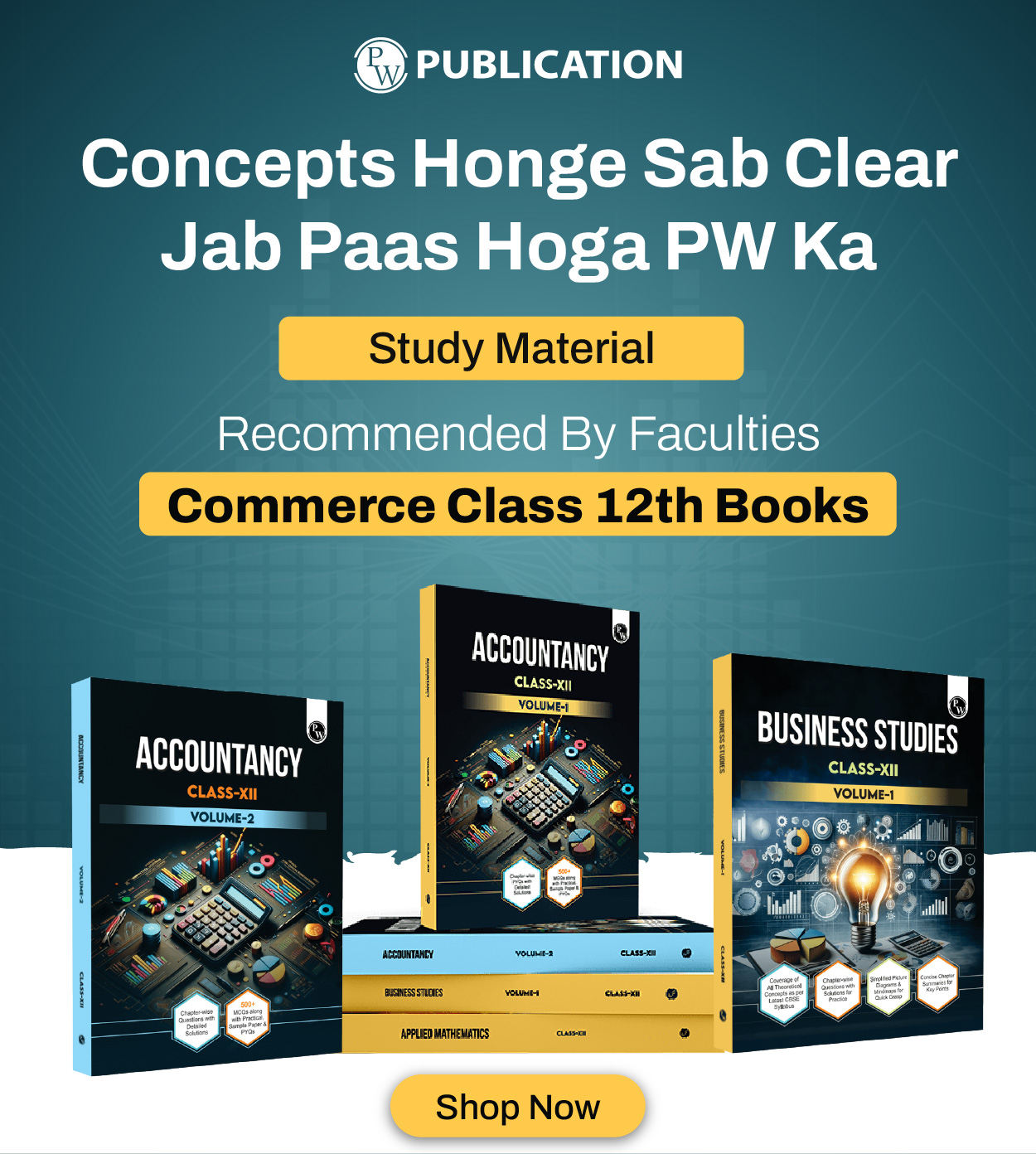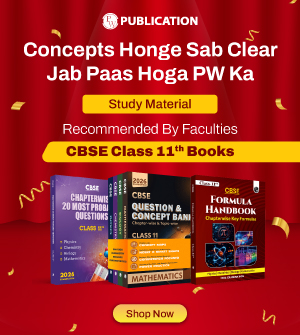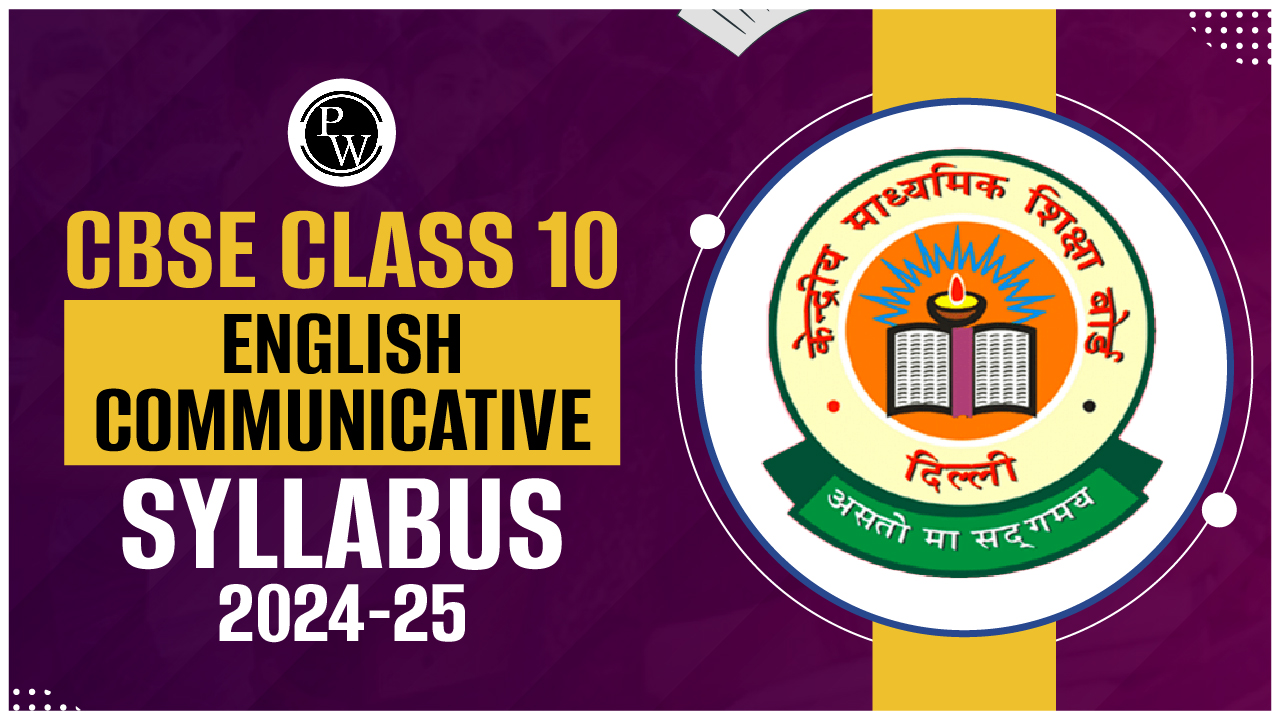Class 11th & 12th Commerce Subject-Wise Study Preparation Tips
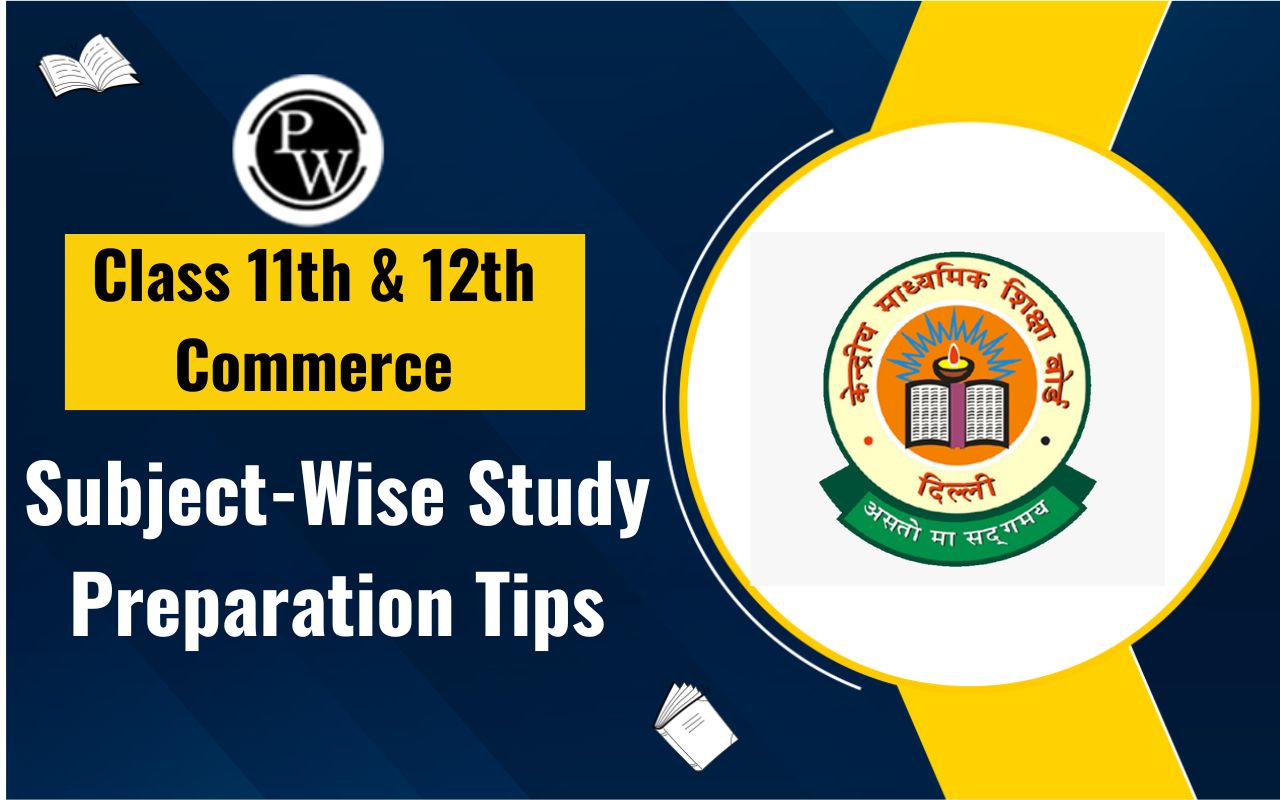
Class 11th & 12th Commerce:- In Class 11th and 12th Commerce, students learn about business, economics, and finance. They study various subjects like accountancy, economics, business studies, and informatics practices. These classes help them think critically, solve problems, and understand how businesses work. Let's explore the subjects that form the foundation of their Commerce education, setting them up for success in academics and their future careers. Get the Class 11th & 12th Commerce Syllabus, subject-wise preparation and other details below.
Class 11th & 12th Commerce
Many Class 10 students are attracted to the Commerce stream because of its diverse opportunities. After completing Class 12 board examinations, they can opt for a Bachelor of Commerce (B.Com), a foundational 3-year undergraduate degree. This degree opens doors to numerous specialized postgraduate professional courses. Commerce serves as a gateway to various career paths after Class 12, including Chartered Accountancy (CA), Company Secretary (CS), Cost and Management Accountant (CMA), Chartered Financial Analyst (CFA), roles in the banking sector, teaching, and more. These options offer fulfilling career paths for Commerce professionals.
List of Subjects for Class 11th & 12th Commerce
Get the List of Subjects for Class 11th & 12th Commerce below:-
|
Class 11 Commerce Subjects |
Class 12 Commerce Subjects |
|
|
Subject-Wise Study Preparation Tips
Preparing for exams requires strategic planning and focused effort, especially when tackling various subjects with distinct methodologies. A well-structured preparation plan tailored to each subject can significantly enhance comprehension. Here's a subject-wise prep plan designed to optimise your study approach:
1. Accountancy
Accountancy is the backbone of financial management, encompassing the systematic recording, analysis, and presentation of financial transactions. A solid grasp of accountancy principles is essential for effective decision-making and financial reporting. Here are the Class 11th & 12th Commerce Accountancy tips below:-
-
Understand fundamental concepts: Begin by mastering basic accounting principles such as double-entry bookkeeping, journal entries, and ledger maintenance.
-
Practice calculations: Regularly solve accounting problems to reinforce numerical skills and familiarise yourself with common accounting equations and formulas.
-
Review real-world applications: Explore case studies and examples to contextualise theoretical concepts and understand how accounting principles are applied in practical scenarios.
-
Stay updated: Stay updated on accounting standards and regulations to keep your knowledge current and relevant.
2. Business Studies
Business Studies offers a comprehensive exploration of various aspects of business operations, including finance, marketing, and organizational management. It provides a holistic understanding of business dynamics and equips individuals with essential skills for navigating the corporate landscape.
-
Cover core topics: Dedicate time to studying key areas such as financial management, marketing strategies, organizational behaviour, and business ethics.
-
analyse case studies: Examine real-world business scenarios to enhance critical thinking and problem-solving skills, identifying challenges and devising effective solutions.
-
Engage with industry resources: Supplement textbook learning with industry reports, business news articles, and insights to gain practical insights into contemporary business practices.
-
Practice interdisciplinary thinking: Recognise the interconnectedness of different business functions and develop interdisciplinary perspectives to address complex business challenges effectively.
Check Out: Class 11 Business Studies & Class 12 Business Studies
3. Economics
Economics includes the principles governing resource allocation, decision-making, and market dynamics. It provides valuable insights into individual behaviour, firm strategies, and government policies, shaping our understanding of socioeconomic phenomena.
-
Grasp foundational concepts: Familiarise yourself with basic economic principles such as supply and demand, opportunity cost, and market equilibrium.
-
Explore economic theories: Study various schools of economic thought, including classical, neoclassical, Keynesian, and behavioural economics, to understand different approaches to economic analysis.
-
analyse real-world data: Interpret economic data, graphs, and charts to discern trends, patterns, and correlations, honing your analytical skills and empirical reasoning.
-
Stay informed: Keep abreast of current events and economic developments, reflecting on their implications for economic theory and policy-making.
Check Out: Class 11 Statistics For Economics & Class 12 Economic Books
4. Informatics Practices
Informatics Practices delves into the realm of software development, networking, and coding, providing a foundation in computer science principles essential for navigating the digital age.
-
Master programming languages: Acquire proficiency in programming languages such as Java, Python, or C++, focusing on syntax, data structures, and algorithmic problem-solving.
-
Explore networking concepts: Understand networking fundamentals, including TCP/IP protocols, network topologies, and security mechanisms, to comprehend the architecture and operation of computer networks.
-
Develop practical skills: Engage in hands-on coding projects, network simulations, and software development tasks to reinforce theoretical knowledge and cultivate practical knowledge.
-
Leverage online resources: Utilise online tutorials, coding platforms, and forums to access additional learning materials, seek assistance, and collaborate with peers on coding challenges.
5. Mathematics
Mathematics serves as the language of commerce, underpinning quantitative analysis and decision-making across various business domains. A solid foundation in mathematical principles is indispensable for interpreting financial data and optimizing business strategies.
-
Review core concepts: Brush up on fundamental mathematical topics such as algebra, calculus, probability, and statistics, focusing on applications relevant to commerce and economics.
-
Practice problem-solving: Solve mathematical problems from textbooks, practice sets, and past exam papers to reinforce mathematical techniques and improve problem-solving skills.
-
Apply mathematical tools: Explore mathematical models and techniques used in inventory management, financial analysis, market research, and optimization to analyse business scenarios and make informed decisions.
Books for Class 11th & 12th Commerce
When it comes to excelling in Class 11th and 12th Commerce, selecting the right study materials is essential for success. Get the Books for Class 11th & 12th Commerce below:-
|
Book Title |
Description |
Price (Discounted) |
Original Price |
|
BSE Class 11 Introductory Microeconomics Chapter-wise Textbook |
500+ MCQs and Practice Questions with Detailed Solutions and Flowcharts For 2025 Exam |
₹247 |
₹222 |
|
500+ MCQs and Practice Questions with Detailed Solutions and Flowcharts For 2025 Exam |
₹378 |
₹340 |
|
|
Chapter-wise Textbook l 500+ MCQs and Practice Questions with Detailed Solutions and Flowcharts For 2025 Exam |
₹249 |
₹224 |
|
|
— |
₹1,500 |
₹1,350 |
|
|
500+ MCQs and Previous Year Questions For 2025 Exam |
₹269 |
₹299 |
|
|
CBSE 2024 Solved Paper included For 2025 Exam |
₹314 |
₹349 |
|
|
CBSE 2024 Solved Paper included For 2025 Exam |
₹404 |
₹449 |
|
|
For 2025 Exam |
₹251 |
₹279 |
|
|
300+ Practice Questions For 2025 Exam |
₹197 |
₹219 |
|
|
CBSE 2024 Solved Paper included For 2025 Exam |
₹359 |
₹399 |
Read More: Commerce Class 11th 2024-25 Syllabus and Study Tips
Class 11th & 12th Commerce FAQs
Q1. What subjects are included in Class 11th and 12th Commerce?
Ans. Class 11th and 12th Commerce typically include subjects like Accountancy, Economics, Business Studies, Mathematics, Informatics Practices, and sometimes, Statistics.
Q2. What are the career options after completing Class 12th Commerce?
Ans. After Class 12th Commerce, students can pursue various career paths such as Chartered Accountancy (CA), Company Secretary (CS), Cost and Management Accountant (CMA), Chartered Financial Analyst (CFA), banking, teaching, and more.
Q3. Are there any entrance exams for Commerce students after Class 12th?
Ans. Yes, Commerce students can appear for entrance exams like CA Foundation, CS Foundation, CMA Foundation, BBA entrance exams, and various university-level entrance tests for undergraduate programs.
Q4. Is Commerce a suitable stream for those interested in pursuing careers in finance and business?
Ans. Yes, Commerce is an excellent stream for students interested in finance, business, and related fields. It provides a strong foundation in subjects like accountancy, economics, and business studies, which are essential for such careers.
Q5. What are some tips for scoring well in Class 11th and 12th Commerce exams?
Ans. Some tips include understanding concepts thoroughly, practicing regularly, solving previous years' question papers, making concise notes, seeking clarification on doubts, and managing time effectively during exams.
